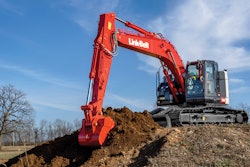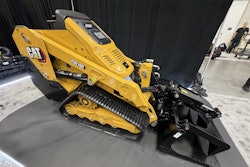
Two weeks after Washington State’s I-5 plunged into the Skagit River north of Seattle, Sen. Patty Murray (D-WA) chaired a hearing in the Senate Appropriations Committee to examine the event. The official name of the hearing – “Crumbling Infrastructure: Examining the Challenges of Our Outdated and Overburdened Highways and Bridges” – suggests that the purpose of the hearing had less to do with discovery than it did with rehashing the lines of a tired script to give the appearance of political action.
This is part of the familiar, circular pattern to America’s reaction to infrastructure failures. There is the event itself, which lives in the headlines for a day or two. Then comes the Congressional response – a hearing, sometimes more than one. Then comes the solemn resolution that the country is not spending enough on infrastructure.
The resolution is never to actually spend more on infrastructure, because that would require increasing revenues or, in the obscene parlance of yesteryear, raise taxes. And there is nothing, not a single thing, that could convince the anti-tax votes in Congress and the all-powerful forces supporting them to ever vote for a tax, not even one measured in pennies.
While we are no closer to solving the problems associated with aging infrastructure, we can take solace in the fact that this hearing will give a handful of our elected leaders something to do that, while not effective, will not ultimately prove to be harmful either. We can also take grim solace in the fact that collapsing bridges, though spectacular, are not the primary or even secondary symptom of our underfunded infrastructure, though if they were we might have a better chance of convincing our fellow citizens and their representatives to invest in roads and bridges.
When these little dramas pop up periodically, I’m always reminded of a panel discussion I saw in Washington, D.C., about 10 years ago on our eroding road and bridge infrastructure. The panel was an august collection of experts, including a gentleman representing a Libertarian think tank. The Libertarian representative was, by far, the panel’s most knowledgeable analyst, with a command of data that went much deeper than anyone else in the room. What everyone agreed on, of course, was that the United States needed to spend tens of billions of dollars more annually on its roads and bridges, but the Libertarian was strangely silent on how to raise the money.
 [email protected]
[email protected]When he was finally asked this question during Q & A, it was like the old E.F. Hutton commercials – everyone in the room sat forward in hushed expectancy, wondering if the Libertarian voice would actually mouth the filthy “T” word. He didn’t. He did a riff on how public-private partnerships could help a little, then shrugged his shoulders and stopped talking.
Ten years ago, the brightest guy in the room couldn’t solve the problem of aging roads and bridges without raising taxes and the only thing that has changed since then is that thousands of bridges and tens of thousands of highway bases are 10 years older.











